

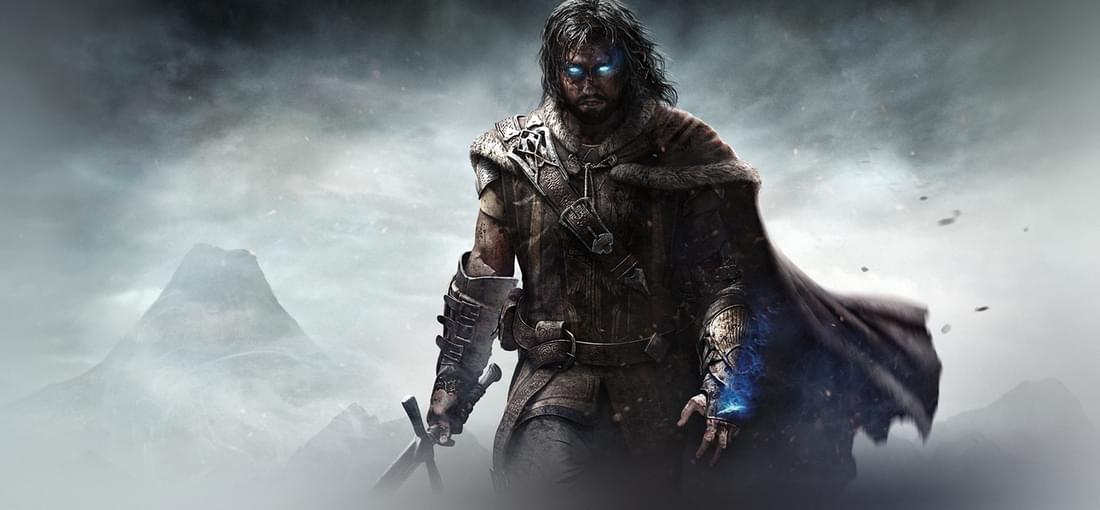
Shadow of Mordor's strength is in the simple, syrupy fun its gameplay provides. It allows the player freedom to cause what mayhem they will and gives them the tools to either survive, or to continuously add fuel to the fire. In that way, the best part of Shadow of Mordor reminds me of racking up a five star wanted level in Grand Theft Auto. The chaos and mayhem is just a delight to indulge in. There's a story here as well. It isn't anything too noteworthy, but there's a nice blockbuster sheen to it and a smooth Middle-earth flavour. You play as Talion, a Ranger from Gondor, who sees his wife and son murdered by Sauron's forces before being killed himself. Unable to cross over to where mortals go when they die, Talion finds himself bound to a vengeful wraith in the middle of Mordor, and decides to seek revenge and release one way or the other. It's a paper thin story that has an atrocious ending, but it is saved by likeable enough characters and production value. Lithariel and Torvin are pretty cool as characters go. But really, most of Shadow of Mordor is about its gameplay. As mentioned above, this is where it, quite frankly, excels. The gameplay loop involves going out in a fairly open world and killing orcs; occasionally sneaking pass and mind-controlling them and the like, but mostly killing. There are so many ways to do this and the game encourages you to switch up your playstyle often. The main combat feels like a one-to-one replication of the Batman Arkham games' combat, and it feels just as good; even better, I think, since there are a lot more options in combat and it is a lot more visceral. I spent hours addicted to the gameplay. Shadow of Mordor feels like the perfect Assassin's Creed game, in a way. Its map is full of icons, collectibles and side-quests, but it isn't egregious or bloated. I 100%-ed everything, including the DLC, in around 33 hours. So this is highly concentrated fun. The DLCs, however, were pretty underwhelming, feeling too thin and insubstantial; like butter scraped over too much bread. Too much is recycled, though The Bright Lord DLC was a decent challenge and fun enough. Also, the game's famous Nemesis system never really impressed me all that much. It's fine, I suppose, but it seemed too forced and manufactured to get me really invested in a roleplaying way. I didn't find the orcs were particularly memorable and it never stood out from the rest of the emergent gameplay. Lastly, and not really a complaint, I was confused as to why this was a Middle-earth game in the first place. For commercial reasons, obviously, but the story, besides the shoehorning of Gollum, is pretty esoteric if one has only ever seen the Tolkien movies. And if one has read the books, the game really runs amok with the lore and themes that it feels kind of out of place. But, sacrilege aside, the amount of detail and effort put into the collectibles and background writing is commendable. It all coalesces into a fine atmosphere that is pretty engaging, if not quite authentic. Overall, Shadow of Mordor feels like the most video gamey video game ever made. It feels and looks like the type of video game you'd see being played on an episode of NCIS. And I mean that in a good way. It's simple, straightforward and incredibly fun with addictive mechanics. I always looked forward to picking up the controller and spending a few hours in this game.
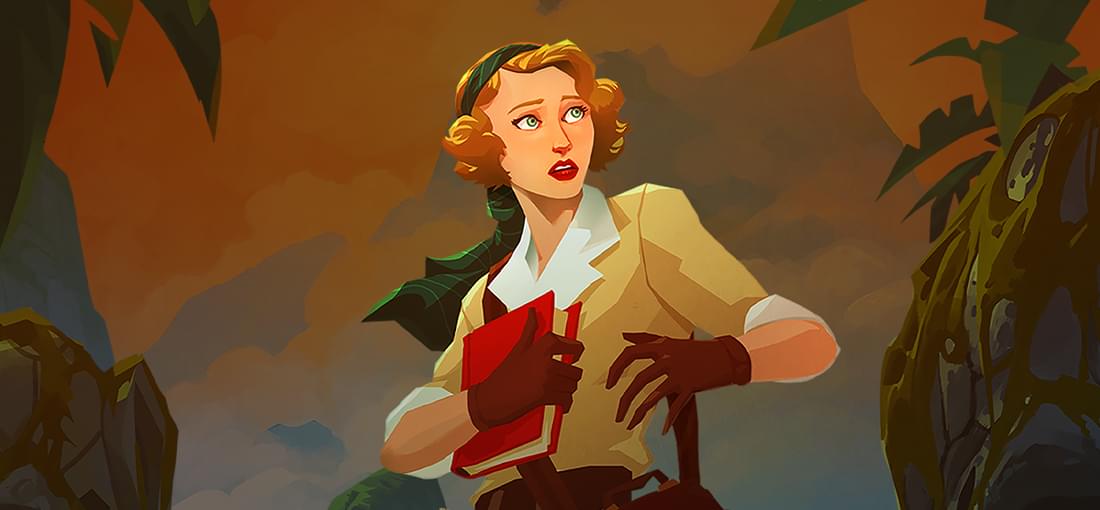
A very average, very inconsequential adventure game. It starts off promising, with a woman Norah in search for her husband and a cure for her illness on a mysterious, cursed island, but quickly devolves into a monotonous trek. Almost all of it has to do with its execution and delivery. For all its supposed stakes, Norah is too blasé about everything. It feels like I'm not the one playing an adventure game, but her. Nothing is serious. There is no gravitas to the story. There's also no real story to the story. Or at least no good one. It's very predictable and bland. Around the first two hours in I was driven only by the slight mechanical delight which came from solving the game's puzzles. Nothing about the story compelled me to see its end. And the puzzles are okay. Most of them can be broken down into 'how do these clues in my journal represent the big puzzle in front of me right now'. Once you realise that, it's just a matter of looking for similarities between the big puzzle and the clues. They were nothing to write home about, but they were okay. The quadrant puzzle, however, was badly explained and took my a long time to figure out. The rest seemed to be a decent challenge. The voice acting by Norah vacillates between serviceable and below-average. She never sells the story or any real emotion. The other voice acting is pretty bad. Her husband, Harry, sounds less like a 1930's adventurer and more like a millennial using therapy-speak at a coffee shop. The writing is also pretty subpar. It evokes nothing but the bare minimum exposition required for coherence. The music is alright but anemic, hardly playing and quick to disappear. The graphics look nice and the art style is fetching; but the art direction, so intertwined with the story, falls flat too often. Overall, I didn't really care for Call of the Sea. There's nothing mortally wrong with it, but in a life with too little time and an abundance of games, I don't think I'd ever recommend it.
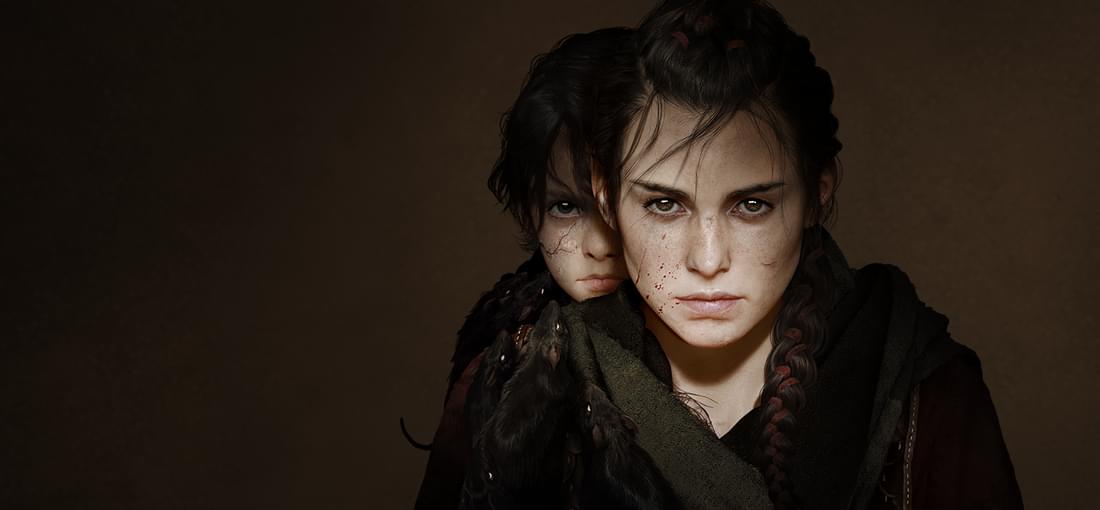
Everything is bigger and mostly better. More gorgeous than the first, Requiem continues the tale of Amicia and Hugo de Rune and the ever present Macula. It's a good action adventure game that reminded me of Rise of the Tomb Raider a lot. Coming from the first game, it feels very Hollywood-ified, with some of its original charm and identity stripped away; but only a little. In many ways Requiem is much improved over Innocence. Full of breathtaking views and setpieces, the gameplay feels fully defined here and not the half-baked attempt of the first game. It's a good mix of action and stealth, with the player's choice on how to proceed. While it isn't anything special, it is a lot of fun paired with its absorbing story. Most chapters, however, feel a bit too long and bloated, and I couldn't help but wish things were a little better paced. The story, too, suffers from bloat. Requiem feels like two games mashed into one. Here, the tight focus of Innocence's story gives way to a sprawling, meandering adventure. It isn't worse per se, but a lot of it leans on its charming characters and performances. The story is full of cults and slavers and ancient mysteries to uncover that it becomes this grand thing that often feels at odds with the intimate lynchpin of Hugo and Amicia's relationship. But it remains a very heartfelt tale. For all it crams narratively, Requiem never stifles heart or soul and I was satisfied come its end. Technically, the game could be better. I had two nasty crashes, each happening while the game saved new checkpoints. Restarting would lead to the same crashes. To solve the issue, each crash required me to 'Verify and Repair' the game's install via GOG Galaxy, after which 25mb of data was downloaded each time. After downloading, the game would run and play as normal again. Overall, I really loved this game. It provides closure for the first and spins a wonderful, if longwinded tale. A definite improvement from the first, and a really great game.
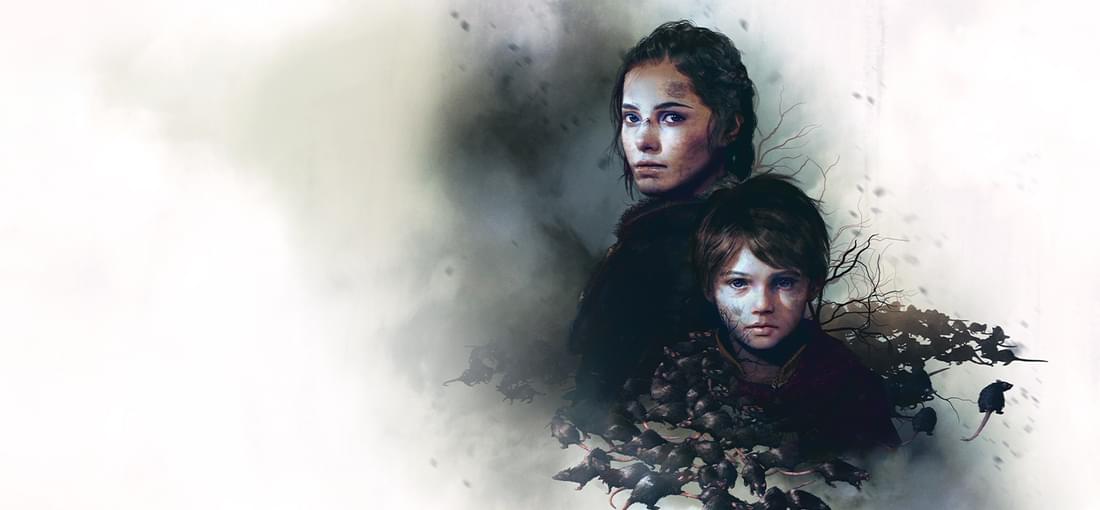
Like its visuals, A Plague Tale: Innocence is lush and generous. It tells the tale of two siblings, Amicia and Hugo, caught amidst plague-stricken France and an Inquisition that seeks to destroy everything they love. Its story is its highlight and, when it picks up, it becomes hard to put down. That said, A Plague Tale's biggest fault is just how bad its gameplay is. It is a stealth/puzzle game which, at its best, feels like a sort of medieval Tomb Raider. More often, though, its gameplay is monotonous and benign. Much of it involves sneaking, avoiding rats and solving puzzles. The game's AI is atrociously exploitable and the stealth is very barebones. It often feels like it doesn't build upon its mechanics and instead feels flat. Puzzles rarely increase in challenge and are often just more of the same. Or sometimes they are so specific that the game explains their solutions before giving you a chance at solving them. It all makes for an underwhelming experience. But A Plague Tale makes up for its gameplay with its story and looks. The story is like a pulpy Victor Hugo novel, full of alchemy and intrigue, rats and religion. All of it is conveyed gorgeously through some stellar art design and wonderful graphics. Every chapter is memorable, full of striking scenes and vistas; every cutscene full of tasteful narrative and drama. Now, occassionally, there is an awkward staccato at times to how the story is told; its pacing is sometimes off with story beats happening a bit too abruptly. But the production values are so high that it smooths it over. In the end A Plague Tale is simply engrossing. And this is why it is worth playing. Not once did I truly enjoyed interacting with its systems. Yet the story is well done and the gameplay is not so offensive that I found myself looking forward to seeing it through. And in the end I was satisfied. A Plague Tale doesn't overstay its welcome and I enjoyed it quite a lot. Despite its shortcomings, it really is a great game.
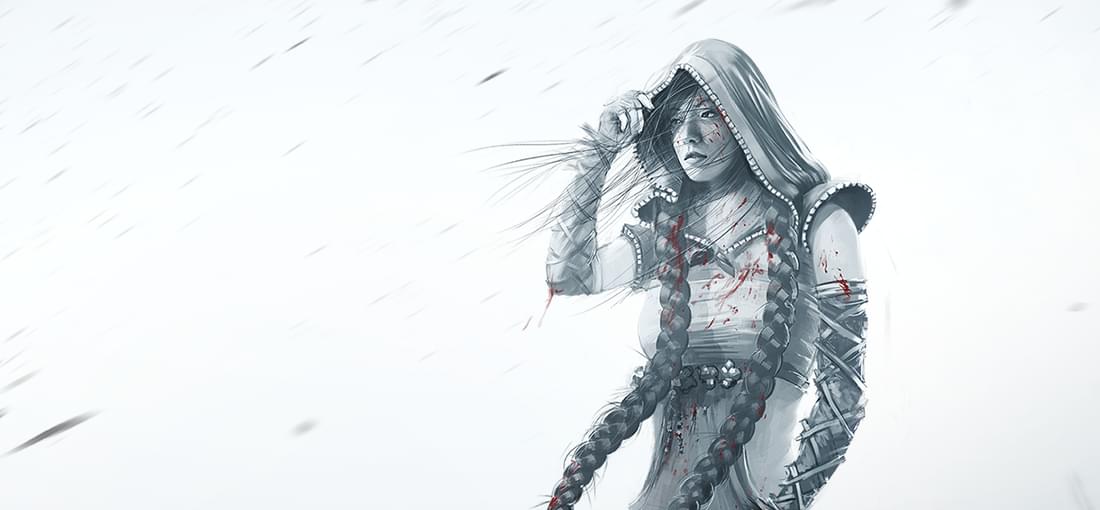
This expansion, Aiko's Choice, showcases a more experienced developer handling some underdeveloped tools and systems. While the mechanics and gameplay aren't changed, being as clunky as they were in Blades of the Shogun, the level design sees a marked improvement over the base game. Aiko's Choice is even easier than Shadow Tactics, but it eschews difficulty for allowing fun experimentation. Its levels are large sandboxes that invite players to tackle their objectives however they please. The breadth of choice is more than a fair trade for the usual puzzle-like level design. The story, too, of Aiko's Choice is well done. Again, like the base game, it rests comfortably wrapped in stereotype and cliche, but its sincerity carries it through. The simple pleasure of something familiar is not to be understated. And it is because of this that Aiko's Choice is very affecting for those who have played the base game before. This is a definite improvement to the whole Shadow Tactics package.
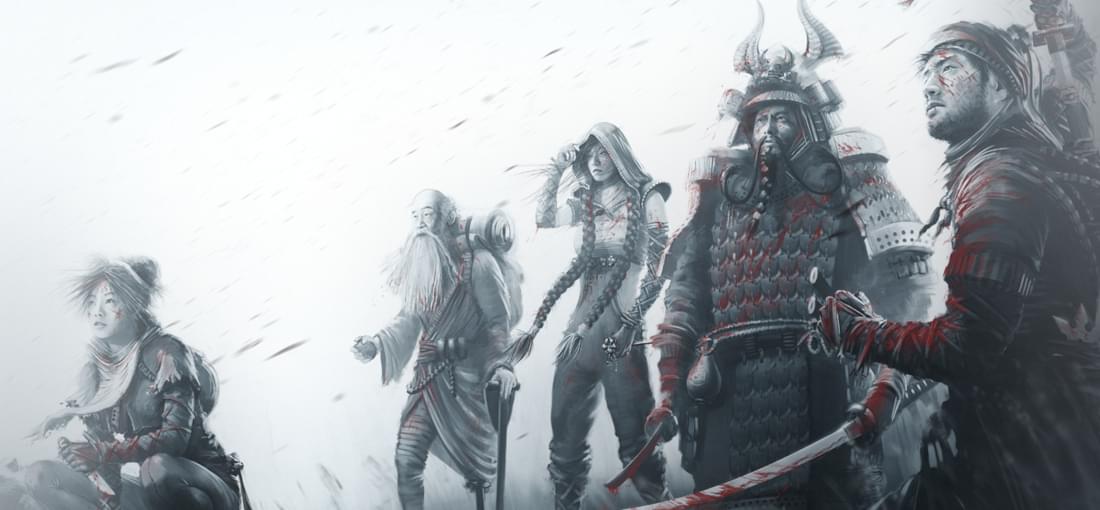
imimi's first game is a lot of fun with a very simple heart. The actual tactics and mechanics of the game aren't very tight when compared with their later work, but that is to be expected with this earlier, first effort. And taken for what it is, it is a very enjoyable game. It tells the story of a group of misfit assassins assisting the rise of the Shogun against the elusive Kage-sama. Mugen the samurai, Hayato the shinobi, Yuki-chan the thief, Aiko the kunoichi and Takuma the gunsmith round out the cast. The game lives or dies based on how well the characters are realised and thankfully they are all relatively well done. Each has a very comfortable stereotype about them; a familiar role and personality that is to be succored and savoured instead of being subverted and railed against. Even the story is quite predictable, but one that amounts to a rich indulgence. Where the game does falter is in its level design and pacing. Coming from Mimimi's more experienced work, Shadow Tactics feels too scattered and unfocused. The levels are too loosely designed and easily overcome; these certainly aren't the diabolical designs of Desperados III. Oftentimes, my first half-baked plan or impulse was successful at progressing through the game. I rarely had to put too much effort or think too hard to make any headway through the levels. This ease took away from the game and I found myself playing simply to see the story through. The pacing, also, is not as smooth as it should be. There aren't any of those big, coalescing moments or levels one would find in Mimimi's later games. Each level features only three or so characters often with similar objectives. Levels where you get to play with all five characters, or where there are those big, dramatic moments, do exist, but they are far and few between. Overall, though, Shadow Tactics is not a bad game. At worst it is sometimes underbaked. But at its core there exists an undeniable fun and enjoyment to be had.
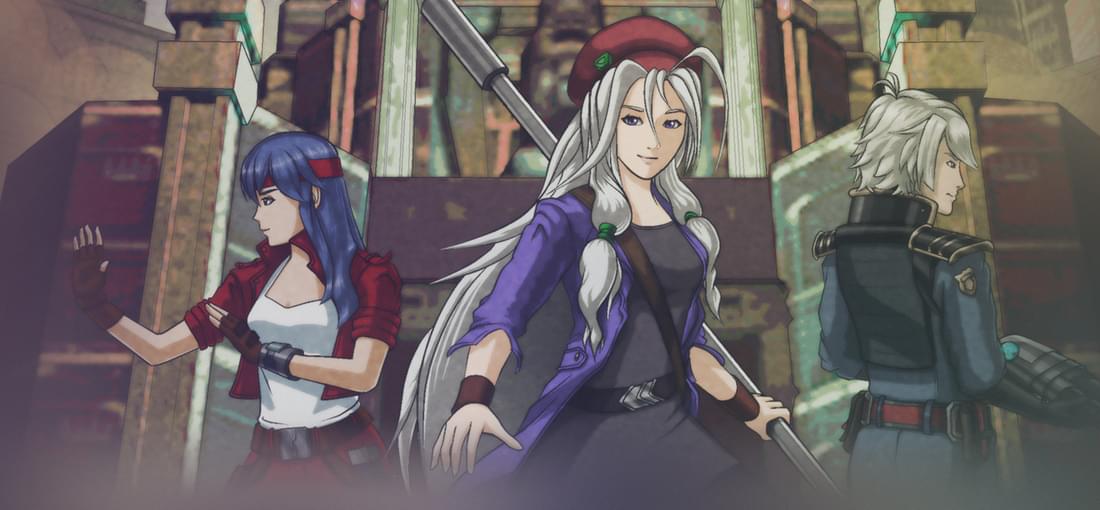
This is a self-indulgent throwback to Phantasy Star IV but without any substance or artistry. It's an indie JRPG that is half-hearted about everything except its combat. Its combat is admittedly fairly robust, but even then nothing too special. A sci-fi story about some rogue secret agency trying to take over the world through mind control, and their star agent being the one to have to stop it, the game doesn't place much emphasis on narrative. This is meant to be a fun romp; a quick diversion. If it were actually quick, I'd like it more. Cosmic Star feels overlong despite being less than twenty hours. Halfway through the game it opens up and gives the player more freedom, and this is to its detriment. Nothing about it is interesting enough to make one want to engage with it on any meaningful level. When it is railroaded, it at least has a brisk enough pacing. The music is serviceable and the writing is forgettable. The characters are one note placeholders. There are dialogue bugs and at least one misspelling. The presentation is amateurish with it being a pain to get basic information while in combat or preparing for combat. The game also looks quite ugly. The pixel art looks low budget and utterly tacky. The most fun I had was taking on the optional bosses in the game. Like I said, the combat system is fairly robust. Outside of that, this was a slog to get through.
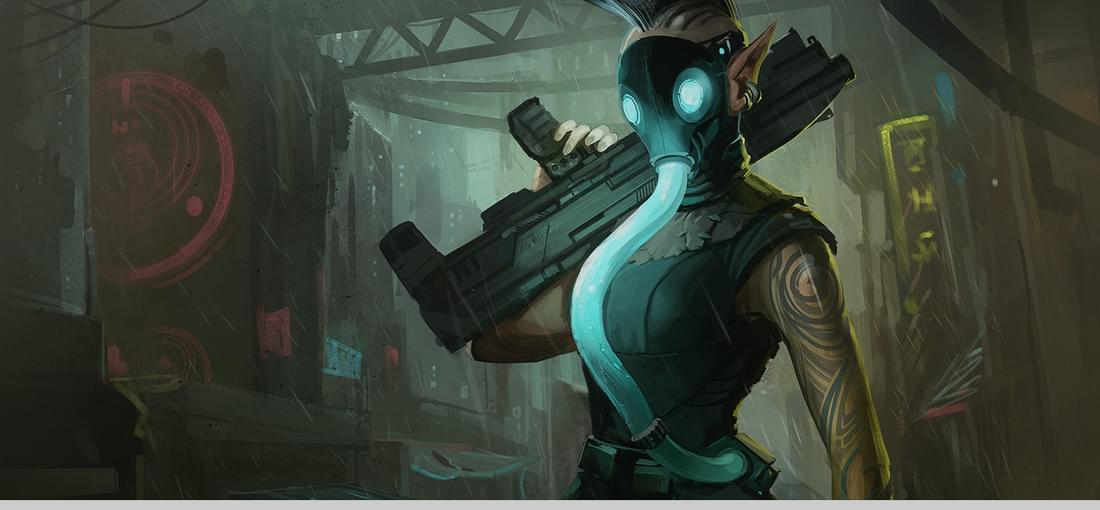
Something about this game compelled me to finish it. There's a simple sheen over its barebones mechanics, a bold slathering of character, of the Shadowrun universe, that made this weirdly fun. This game is an RPG that really is a point and click adventure game with turn based combat. The combat is fun, but it doesn't end when all enemies are dead, so I came to dread it, and the pointing and clicking is passable with the icons sometimes taking very long to come up to be clicked. The game's writing is very noir-ish, very Sin City. I liked it although the plot is rushed in its middle and not well explained. The art is well done and the art direction is top notch. Shadowrun Returns is truly a game greater than the sum of its parts. After completion, I was excited to install its sequel, the much better received Shadowrun Dragonfall, and play that game instead. So there's something to be said about this not being a completely mediocre game.